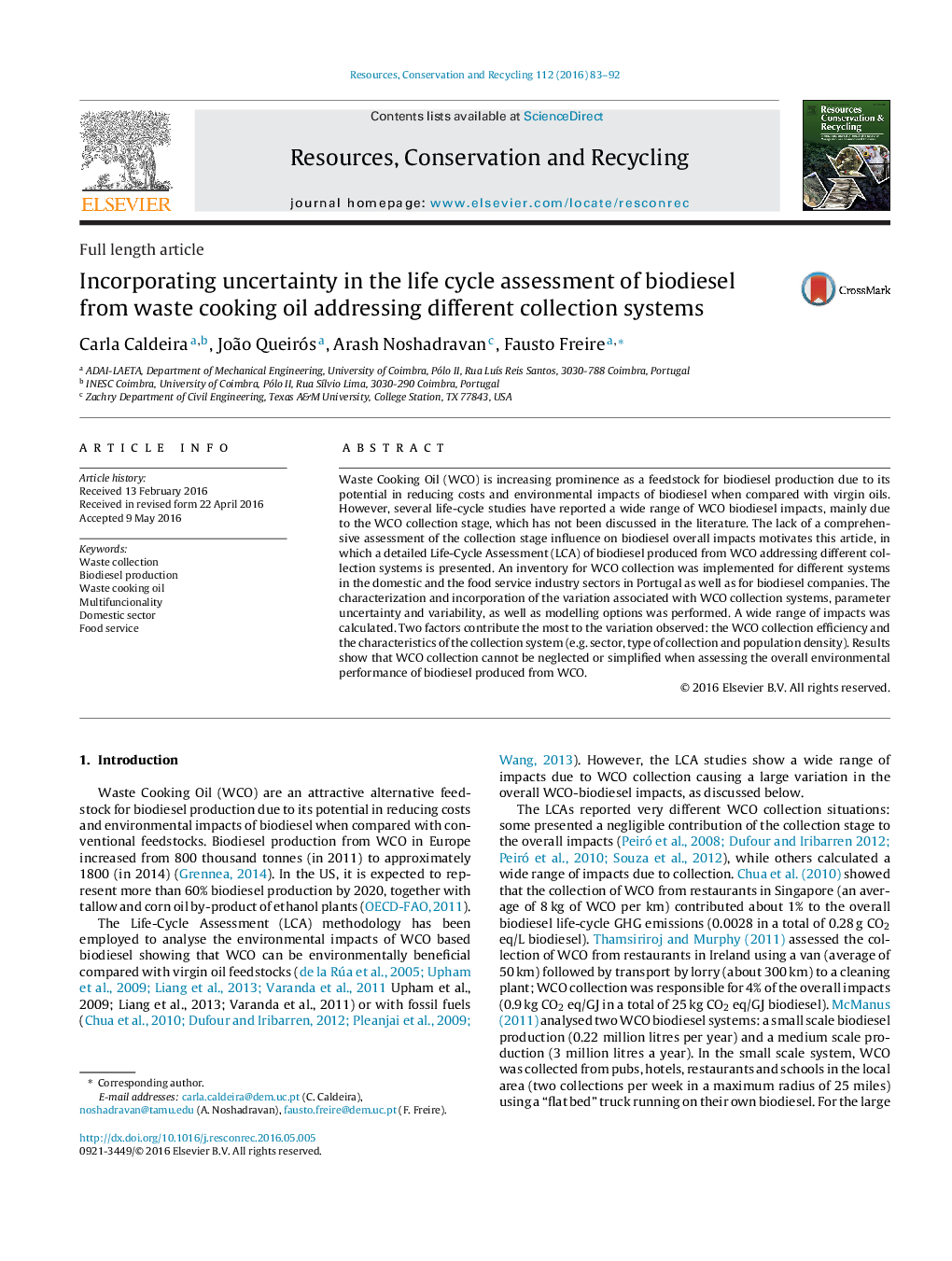| Article ID | Journal | Published Year | Pages | File Type |
|---|---|---|---|---|
| 7494835 | Resources, Conservation and Recycling | 2016 | 10 Pages |
Abstract
Waste Cooking Oil (WCO) is increasing prominence as a feedstock for biodiesel production due to its potential in reducing costs and environmental impacts of biodiesel when compared with virgin oils. However, several life-cycle studies have reported a wide range of WCO biodiesel impacts, mainly due to the WCO collection stage, which has not been discussed in the literature. The lack of a comprehensive assessment of the collection stage influence on biodiesel overall impacts motivates this article, in which a detailed Life-Cycle Assessment (LCA) of biodiesel produced from WCO addressing different collection systems is presented. An inventory for WCO collection was implemented for different systems in the domestic and the food service industry sectors in Portugal as well as for biodiesel companies. The characterization and incorporation of the variation associated with WCO collection systems, parameter uncertainty and variability, as well as modelling options was performed. A wide range of impacts was calculated. Two factors contribute the most to the variation observed: the WCO collection efficiency and the characteristics of the collection system (e.g. sector, type of collection and population density). Results show that WCO collection cannot be neglected or simplified when assessing the overall environmental performance of biodiesel produced from WCO.
Related Topics
Physical Sciences and Engineering
Energy
Renewable Energy, Sustainability and the Environment
Authors
Carla Caldeira, João Queirós, Arash Noshadravan, Fausto Freire,
